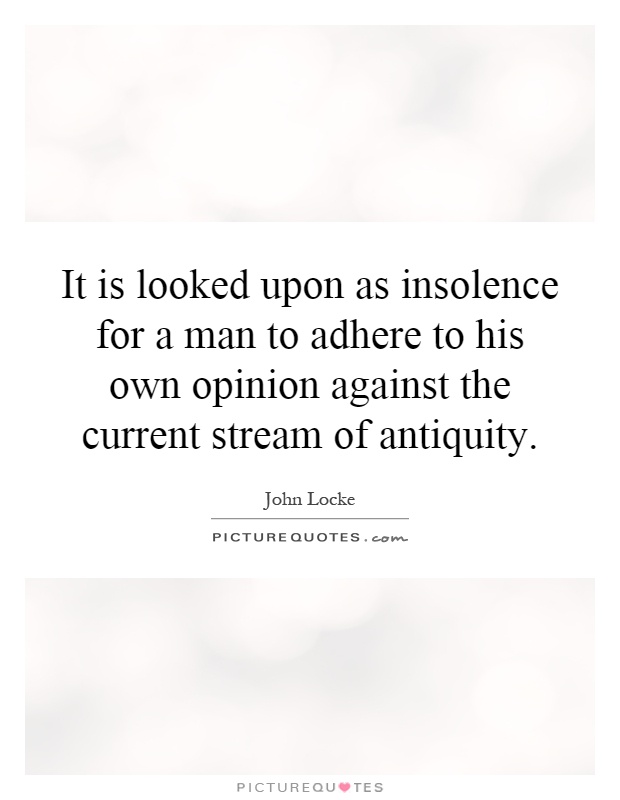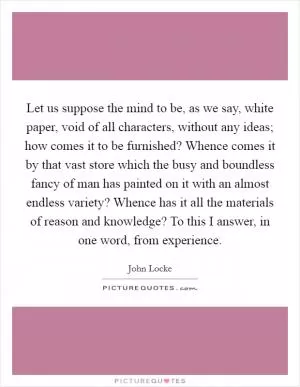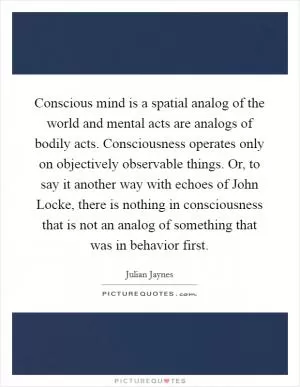It is looked upon as insolence for a man to adhere to his own opinion against the current stream of antiquity

It is looked upon as insolence for a man to adhere to his own opinion against the current stream of antiquity
John Locke, a prominent figure in the Enlightenment era, was a firm believer in the importance of individual thought and reason. He was a staunch advocate for the idea that individuals should not blindly adhere to the beliefs and opinions of the past, but rather should critically examine and question them. In this context, the statement that "it is looked upon as insolence for a man to adhere to his own opinion against the current stream of antiquity" holds particular relevance.During Locke's time, the prevailing mindset was one that placed a high value on tradition and authority. It was considered disrespectful and even rebellious for an individual to challenge the established beliefs of society, especially those that had been passed down through generations. However, Locke believed that progress and enlightenment could only be achieved through the free exchange of ideas and the willingness to challenge the status quo.
Locke's own work, particularly his influential treatises on government and human understanding, reflected his commitment to individual autonomy and rational inquiry. He argued that individuals have the right to form their own opinions based on reason and evidence, rather than simply accepting what had been handed down to them. This emphasis on critical thinking and intellectual independence was a radical departure from the prevailing attitudes of his time.












 Friendship Quotes
Friendship Quotes Love Quotes
Love Quotes Life Quotes
Life Quotes Funny Quotes
Funny Quotes Motivational Quotes
Motivational Quotes Inspirational Quotes
Inspirational Quotes